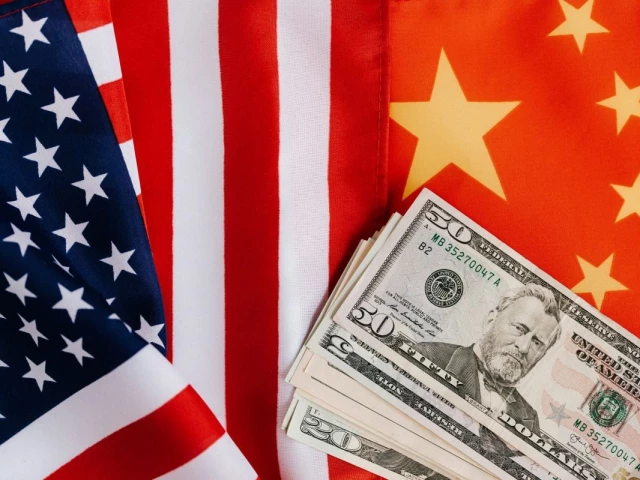Internet platforms read move as a green light to cautiously expand in consumer lending
China urge its citizens to be vigilant of foreign attacks and to report suspicious activity to the authorities. PHOTO: PEXELS
China’s internet platforms are quietly reviving consumer lending, taking Beijing’s push to make household borrowing cheaper as a signal that regulators may be easing a years-long crackdown on the sector, four industry sources said.
Beijing began reining in what it described as “disorderly expansion” by internet platforms in 2020 by pulling the IPO of Alibaba-affiliated Ant Group, followed by business restructuring orders and fines on Ant and others.
In August, however, needing to spur weak consumption while managing a trade dispute with Washington, China introduced consumer-loan interest subsidies, naming Ant and Tencent-backed WeBank alongside traditional banks as eligible lenders.
Internet platforms come up for air
Internet platforms read the move, and earlier high-level meetings between Chinese leaders and prominent private-sector bosses, as a green light to cautiously expand in consumer lending.
“The regulatory landscape has become more accommodative,” said an industry source. “With the current economic situation being challenging, the economy needs to rely on large internet finance platforms.”
“At this point, expansion is a strategic choice and no longer a regulatory constraint,” said the source, echoing similar remarks from three others. All commented on condition of anonymity as they were not authorised to speak to the media.
China’s finance ministry and National Financial Regulatory Administration did not immediately respond to requests for comment. The central bank declined to comment.
Analysts and industry executives say the more stable regulatory environment positions companies like Ant and financial arms of food delivery firm Meituan and TikTok-owner ByteDance for faster growth and fatter margins, though they warn Beijing may tighten the noose again if defaults surge.
Ant Group, ByteDance, Meituan, and Baidu also didn’t respond to requests for comment. Tencent declined to comment.
UBS expects lending through online platforms to rise 7.6% in 2025 from last year to 5.4 trillion yuan ($758 billion), then grow at a 7.4% compound annual pace through 2029, up from 5.7% in 2020-2024.
The sector as a whole, which accounts for about a quarter of overall consumer lending, is expected to see profits surging 9.8% this year to about 110 billion yuan, UBS estimates.
Its head of Greater China financials equity research, May Yan, says the “dramatic tightening” in regulations appears to have ended, which bodes well for the industry.
“Now we’re entering a phase of normalised regulatory oversight,” she said.
‘Good timing’ for a comeback
Online consumer lending platforms backed by tech and e-commerce firms boomed in the 2010s, under a “development first, regulation later” environment.
The abrupt suspension of Ant’s IPO, however, kicked off a campaign that forced fintech giants to fold financial services into separate holding companies subject to bank-like rules, including higher capital requirements and curbs on using consumer data for credit scoring.
By 2023, regulators said 14 major platforms had completed restructuring, but firms stayed wary.
That caution began to ease earlier this year, when Alibaba founder Jack Ma attended an entrepreneurs’ meeting chaired by President Xi Jinping, one of the sources said.
“The general trend of the regulatory environment is improving compared with a few years ago,” said another person at one of China’s top three internet finance platforms.
Although Beijing remains risk-averse, it increasingly views the sector as having sufficient oversight, while consumer subsidies are indirectly spurring growth, the person added.
“It’s good timing,” said Zennon Kapron, director at fintech consultancy GL Insights.
“If the overall economy is struggling, then you need fintech because that drives consumption by making people feel more comfortable spending if they can pay in instalments.”
Consumer defaults creep up
Consumers are noticing the comeback.
Shanghai resident Yang Dongdong, 41, said loan agents courted her much more frequently this year than before, with fast approval among their main selling points. She took her first-ever online loan to furnish her new home.
“These loans are so easy, so I thought, why not?” said Yang.
Not all firms are racing in.
Two industry sources said ByteDance significantly expanded lending this year, while another source with knowledge of the matter said Tencent had discussed ambitious loan targets internally but ultimately retained a cautious stance.
ByteDance did not return requests for comment on their lending strategy, while Tencent declined to answer questions.
Subdued income growth and a feeble job market are pushing up consumer-loan defaults.
Chinese banks and consumer finance firms put 74.3 billion yuan of non-performing loans up for sale in the first quarter, up 190% year-on-year, according to the Banking Credit Asset Registration and Transfer Center.
Consumer loans were about 70% of this non-performing debt.
“It’s a real concern,” said Christopher Beddor, deputy China research director at Gavekal Dragonomics, who estimates 5-7% of the country’s adult population may have defaulted or fallen behind repayments on loans of any kind.
The person at one of the top platforms expected Beijing to remain on alert about emerging financial vulnerabilities.
“Make no mistake, the regulators still don’t want any more risks,” the person said.
Some borrowers tapped online loans to refinance debt or speculate in stocks, undermining efforts to channel credit to consumption.
Car salesman Max Luo, from the eastern city of Fuzhou, defaulted on 150,000 yuan, part owed to internet platforms.
“These platforms lure you with low repayment pressure promises and instant approval,” he said.
Carpenter Liao Kui, from the central Enshi city, borrowed 300,000 yuan at 1.5% interest to speculate in gold and currency markets, but margin calls wiped his trades out.
Struggling with a 5,000 yuan monthly interest, Liao defaulted in July on loans from Meituan and several banks.
“After three payments, I’ve given up,” said Liao, whose business is floundering. “I have no savings left, only debt.”






